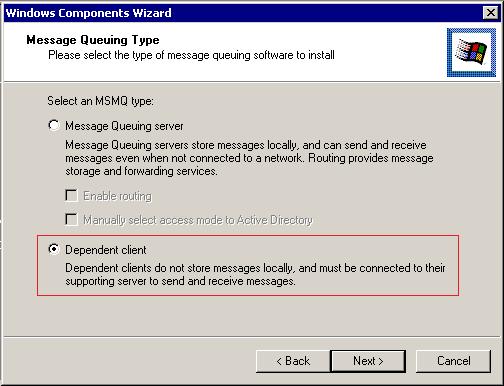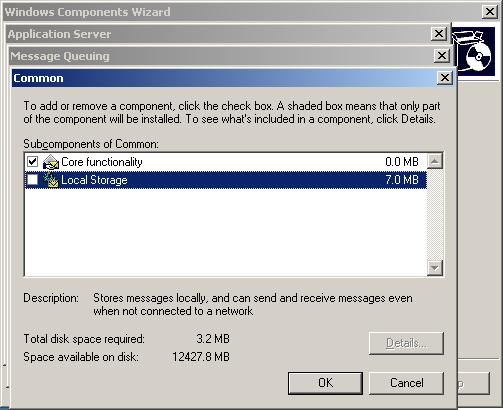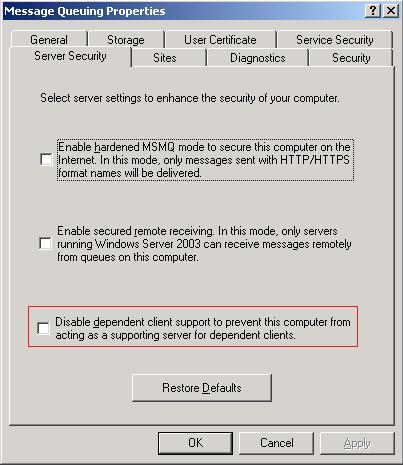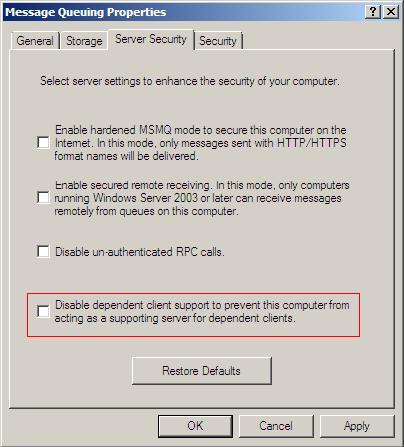Still using MSMQ 2.0? Better start planning as 2010 is not far away.
MSMQ 2.0 is part of the Windows 2000 operating system and, according to the Microsoft Product Lifecycle website, extended support will expire in under 18 months.
Products Released |
General Availability Date |
Mainstream Support Retired |
Extended Support Retired |
|---|---|---|---|
Windows 2000 Server |
31/03/2000 |
30/06/2005 |
13/07/2010 |
Upgrading Windows 2000 clients and servers to Windows 2008 shouldn't pose too many problems except if you are using Dependent Clients.
Just to refresh your memory:
dependent client: An MSMQ client that does not have a local queue manager service. A dependent client has an MSMQ client run-time library but must rely on an MSMQ node operating in the role of supporting server to access MSMQ message queuing functionality.
Now the supporting server role still exists in Windows Server 2008 - no problem there - but dependent client functionality has been removed. So if you are planning to skip Windows 2003 and upgrade your dependent clients straight to Windows 2008 then a system re-design is in order. No news yet on whether the supporting server role will survive into Windows 7.
For those looking into testing this, you install dependent clients as follows:
Windows 2000 dependent client
Pretty straight-forward.

Windows 2003 dependent client
Slightly different - you need to drill down into the Details of Message Queuing's "Common" component and unselect "Local storage". Pretty obscure but there you go.

Windows 2003 supporting server
By default, the supporting server role is disabled so ensure the option is unchecked.

Windows 2008 supporting server
No surprises here.

Notes
Dependent clients cannot be installed on:
- 64-bit computers
- Windows Server 2003 family computers operating in workgroup mode
- Windows 2008 Server family computers
The MSMQ 3.0-dependent client supports only the MSMQ version 2.0 level of functionality. This means that new MSMQ 3.0 features, such as distribution lists, are not available to MSMQ 3.0-dependent clients. The alternative is to deploy DCOM-based solutions instead.